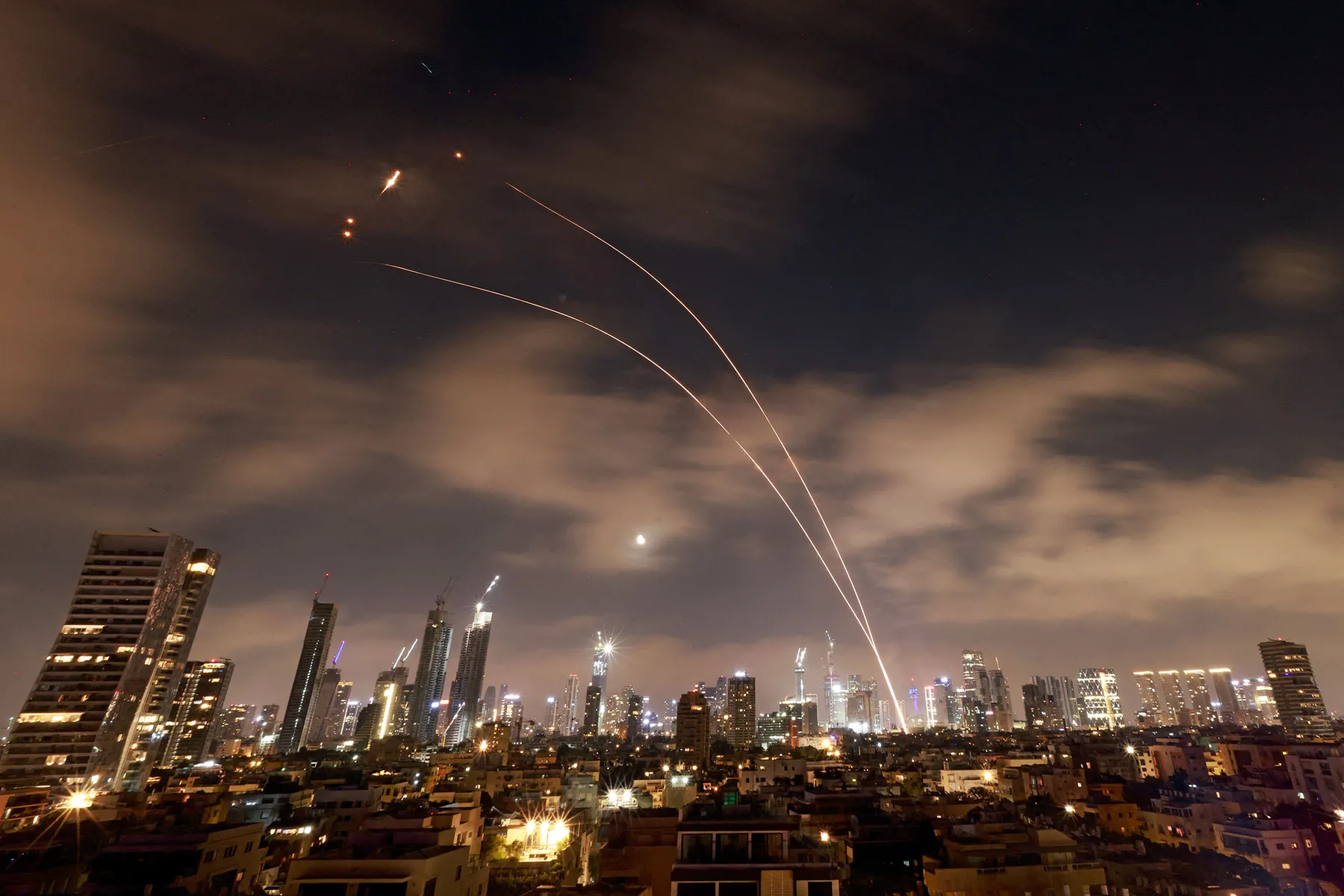The conflict between Israel and Iran has entered its sixth day, and tensions continue to escalate. Amid ongoing strikes and missile exchanges, U.S. President Donald Trump convened his national security team at the White House to discuss possible scenarios for managing the crisis. According to Bloomberg, the meeting lasted over an hour, and shortly after, Trump spoke by phone with Israeli Prime Minister Benjamin Netanyahu. No official statements were released following their conversation.
The United States remains Israel’s key ally and is actively assisting in intercepting Iranian missile attacks, but it continues to refrain from direct military engagement—despite calls from several influential Republicans to join the offensive. According to experts, American technology could play a decisive role in dismantling the Islamic Republic’s nuclear infrastructure. However, Donald Trump has yet to give the “green light” for U.S. airstrikes on Iran.
Prior to the meeting with his advisors, Trump posted an unusually harsh message on social media, calling for Iran’s “UNCONDITIONAL SURRENDER.” He also hinted at the possibility of a strike against Iran’s Supreme Leader, Ayatollah Ali Khamenei. “We know exactly where the so-called ‘Supreme Leader’ is hiding. He is an easy target, but we are not taking him out—for now,” Trump wrote.
The U.S. Builds Up Its Presence in the Region While Avoiding Direct Confrontation
Israel and Iran, meanwhile, made it clear that they have no intention of halting hostilities. The Israel Defense Forces (IDF) reported that most of the missiles launched from Iran overnight were intercepted. Early Wednesday morning, Israeli warplanes struck a facility used to produce uranium enrichment centrifuges.
According to The New York Times, Iran is preparing retaliatory strikes on U.S. military assets in the Middle East in case Washington decides to engage directly. German Chancellor Friedrich Merz told the broadcaster ZDF that if Iran refuses to return to the negotiating table, “the complete destruction of Tehran’s nuclear program may be on the agenda.”
Negotiations over a nuclear deal between the U.S. and Iran had been ongoing for two months but were suspended after Israel launched its offensive. Iran maintains that its nuclear program is purely peaceful and intended for civilian energy use.
President Trump also announced that the U.S. now controls the airspace over Iran. “We have full and absolute control of the skies over Iran,” he posted, noting that Israeli air superiority was made possible thanks to U.S. military technology.
Vice President J.D. Vance emphasized that Trump had made it clear to both the American people and the world that Iran must never obtain a nuclear weapon. “There are many tools at the president’s disposal to achieve that goal,” Vance said.
Oil Market Shaken and Fears of Strait of Hormuz Disruption Grow
Meanwhile, global markets are reacting negatively. U.S. stock indices fell on Tuesday after Trump ruled out the possibility of an immediate ceasefire. Markets responded with anxiety: Brent crude rose to $76.40 per barrel, hitting a five-month high. Concerns are mounting that the conflict could spill over into neighboring energy-producing countries.
The U.S. State Department has closed its embassy in Jerusalem and consular services in both Jerusalem and Tel Aviv for three days as a security precaution. Simultaneously, the U.S. is deploying additional military forces to the region. The aircraft carrier strike group led by the USS Nimitz has been sent to the Persian Gulf ahead of schedule—marking the first such large-scale military shift since the escalation began.
According to the International Atomic Energy Agency (IAEA), Israeli strikes caused significant damage to underground uranium enrichment facilities in Natanz, a key nuclear site in Iran. However, Iran’s second major underground facility in Fordow has not yet been hit. Republican Senator Lindsey Graham openly declared his support for U.S. strikes on Fordow: “You can’t destroy their nuclear program without destroying Fordow. If it takes bombs, bunker-busters, so be it,” he said.
Israel Targets Tehran, Iran on the Defensive
Israel is attempting to draw the United States deeper into the conflict. In an interview with ABC News, Netanyahu stated: “We and America share a common enemy — Iran. It’s in the interest of the U.S. to support Israel.”
Nevertheless, Trump has not ruled out further negotiations. He told reporters he may send a high-level envoy, such as Steven Witkoff or Vice President Vance, to meet with Iranian representatives. Still, he continued to blame Iran for the failure of previous negotiation rounds and said Israel’s military campaign was a response to Tehran’s unwillingness to reach an agreement.
According to the Institute for the Study of War and AEI’s Critical Threats Project, Israel is conducting mass airstrikes on Iran’s capital, Tehran. On Tuesday, Iran’s missile launches decreased significantly: an Israeli military spokesperson reported only a few dozen launches over 24 hours, compared to hundreds over the weekend.
Despite the decline, the consequences remain severe. Israel Oil Refineries Ltd. shut down its largest refinery after it was hit by a missile, killing three employees. The facility has a peak daily production capacity of up to 200,000 barrels, with 70% of its output used domestically.
The open phase of the conflict began unexpectedly when Israel launched a surprise air campaign targeting Iranian military and nuclear sites, killing senior commanders and nuclear scientists. Since then, Israel has achieved air superiority and continues bombing major cities and infrastructure with little resistance.
The situation in Iran is deteriorating rapidly: according to the latest official figures, more than 200 people have been killed in Israeli strikes. In Israel, the government reports 24 deaths and over 600 injuries.
The sharp rise in oil prices and the looming threat to the Strait of Hormuz—a vital artery for global energy exports—are now threatening the stability of the global economy. Qatari authorities have already ordered LNG tankers to delay their passage through the strait due to the risk of further attacks.
The conflict has far surpassed the bounds of a typical regional flare-up and risks becoming a full-blown international crisis. And as Trump delays a definitive decision between military escalation and diplomatic restraint, the world holds its breath.
This article was prepared based on materials published by Bloomberg. The author does not claim authorship of the original text but presents their interpretation of the content for informational purposes.
The original article can be found at the following link: Bloomberg.
All rights to the original text belong to Bloomberg.


















